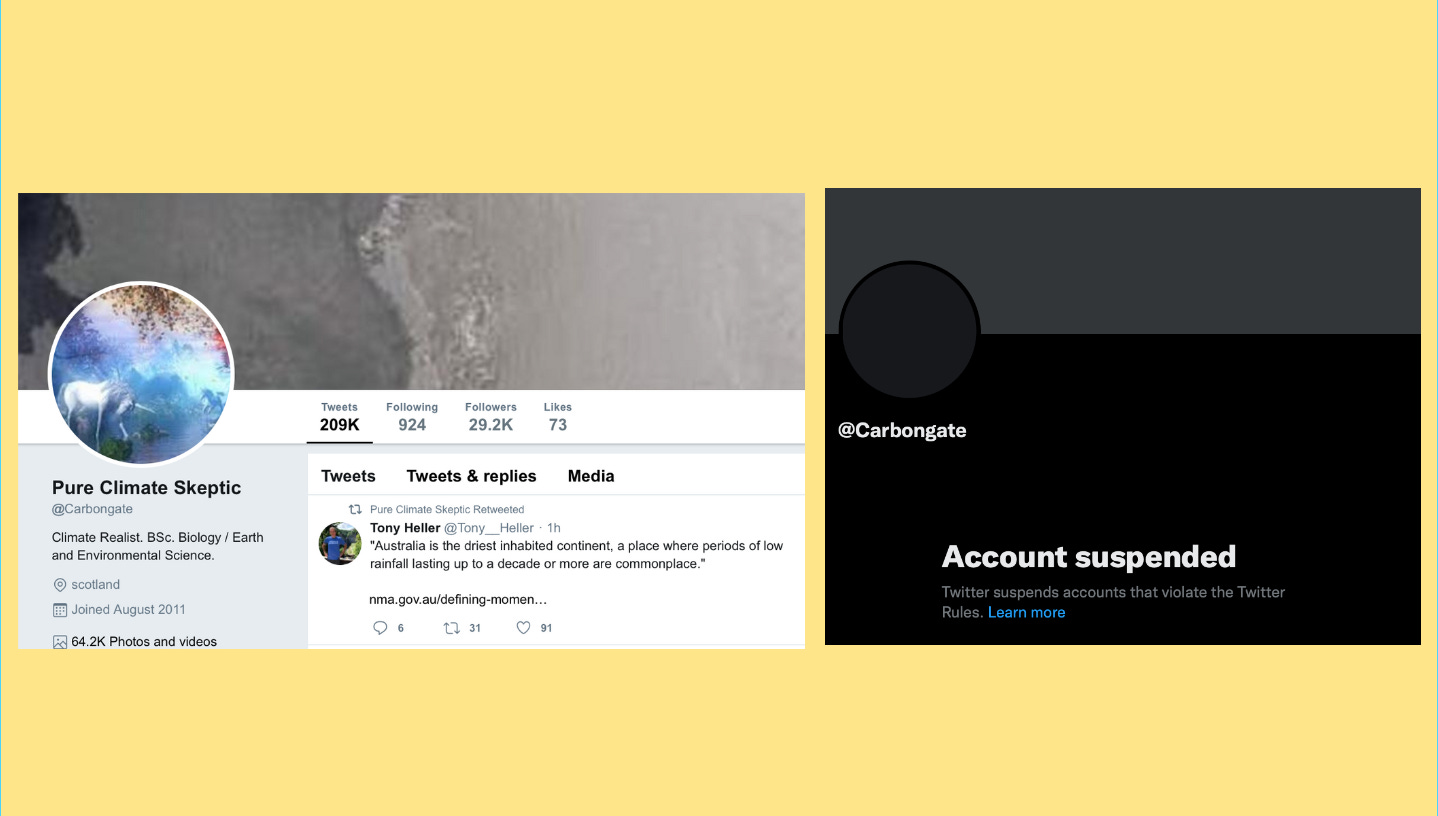Twitter's climate vigilantes
A behind-the-scenes group of climate denier troll hunters say their job has gotten harder since Elon Musk's takeover of the platform
For the last five years, Peter Johnson (not his real name) has been part of a secret group dedicated to finding and reporting accounts that spread climate denial and other misinformation on Twitter.
They call themselves TNT: Team Ninja Trollhunters.
The name is silly, but the work is serious. Over two dozen TNT volunteers regularly patrol Twitter and ot…



